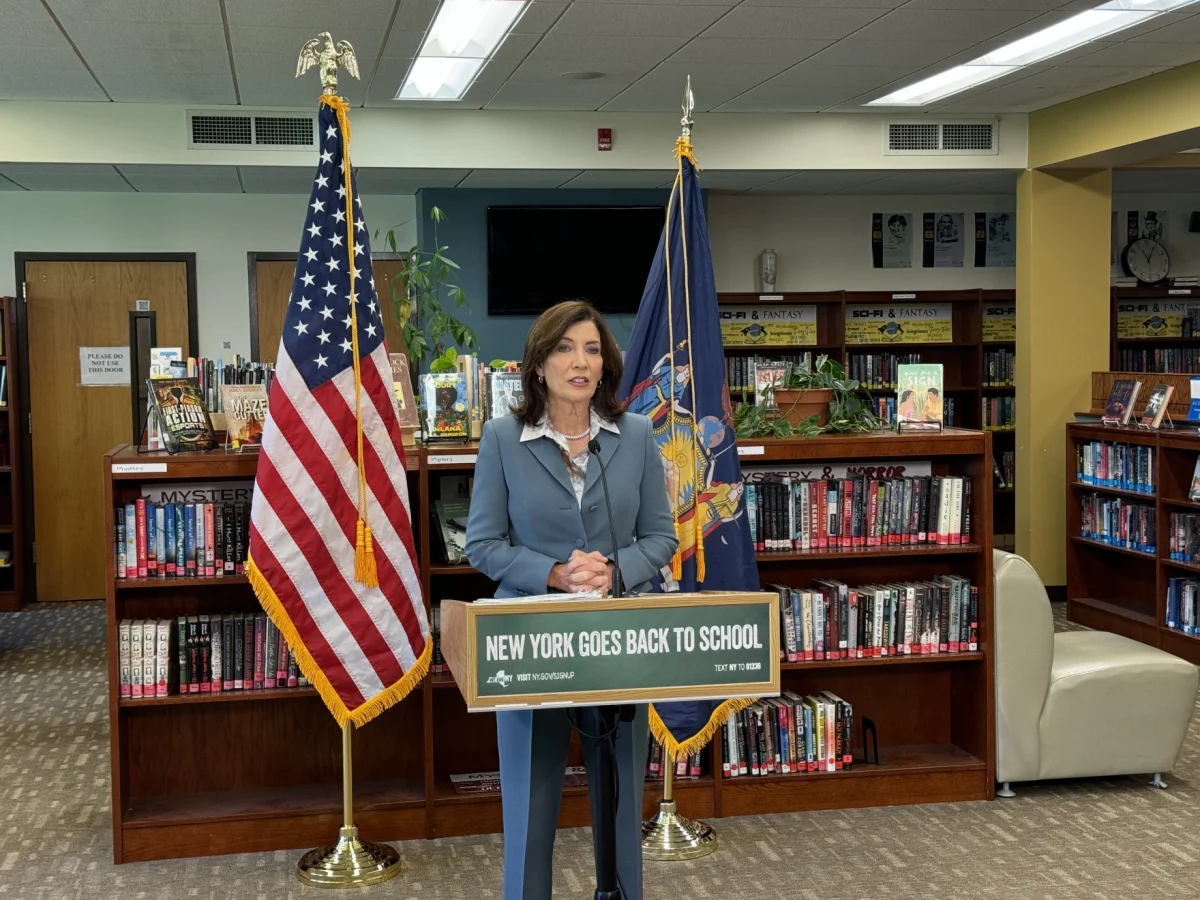Cell phone bans have become widespread in schools within the United States. Many students must lock their phones away during the school day in Yondr pouches, and some schools don’t even allow phones on their premises, which has led to a nationwide controversy about whether students should have access to their cell phones throughout the instructional day.
Some states in the U.S, such as California and Florida, have already banned phones, as many administrators and teachers believe that cell phones and other electronic devices are distracting and damaging to students’ academic performances. These concerns are not unfounded; recent research has yielded evidence that cell phone use adversely affects student academic performance. In the face of this growing body of research and concern, New York Governor Kathy Hochul is seriously considering a statewide ban on cell phones for students in public schools. In early September, Governor Hochul had announced more details about a potential phone ban would come at the end of the month, but, as of this month, those details have yet to be announced.
Governor Hochul cites concerns from teachers as the primary reason she is considering the ban.
“I feel even more committed than I did at the beginning of this process,” Hochul said at an event in a suburban Syracuse school on September 5th. “After all the stories I’ve heard from frustrated teachers, anxious parents, and teenagers who are asking us to help save them from themselves.”
Among the concerns are that cell phones distract students and make it harder for teachers to do their job. According to a CBS news article, “Teachers and administrators have long known cell phones were major distractions in learning.” The article cites a “2023 Pew survey[, which] showed 72% of high school teachers view cell phones as a major problem in their classrooms.” Additionally, cell phones can create distractions in classrooms that cause students to lose focus and think less. According to an ABC article “Additional research on electronic devices shows that smartphones can reduce the ability to think to a person’s full potential, and additional research from Stanford University reveals that intense multitasking decreases the efficiency of completing a given task.”
An addition to the mounting evidence that proves how detrimental phone use is to growing teens’ minds is social psychologist Jonathan Haidt’s book The Anxious Generation, published in March of this year. According to Four Minute Books, the book “shows how smartphones, social media, and helicopter parenting have led to a decline in young people’s mental health and offers actionable solutions to help both our kids and ourselves become mature, emotionally stable adults.” The book has confirmed what many adults have long suspected about growing cell phone use — that teens have become addicted to their phones, which disconnect them from reality and severely limit their ability to cope with the challenges of day-to-day life.
Granted, there are times cellphones in schools can prove beneficial to students. An article in the Harvard Gazette says, “[S]ome Harvard experts say instructors and administrators should consider learning how to teach with tech instead of against it, in part because so many students are still coping with academic and social disruptions caused by the pandemic. At home, many young people were free to choose how and when to use their phones during learning hours.” Phone access can be especially helpful when school WiFi is down, laptops are not working as they should be, or teachers need to administer quick assessments that would take too much time if students had to pull out laptops from the cart (and then return them, which can shave anywhere from three to five minutes off a lesson).
Opponents of the cell phone bans also argue that, in today’s ever-worsening epidemic of gun violence in schools, parents need to be able to contact their children to ensure they are okay in the event of a lockdown or an emergency. “When there are emergencies at school, being able to directly communicate with your child to ensure they are safe is critically important and too often schools are dropping the ball on effective communication,” said Keri Rodrigues, president of the National Parents Union, in a statement. “Cell phone bans fail to take into consideration the tragic, real-life scenarios that unfortunately play out all too often in schools.”
It is evident that the discussion surrounding cell phone use in schools is still developing. Here at Fort Hamilton, cell phones continue to be permitted in spaces like the cafeteria and the library, but are generally forbidden from the classroom unless the teachers allows students to use them for instructional purposes.



























